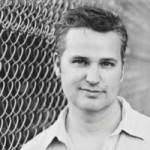
Source: Life as a nursing student. Available at: https://www.pinterest.com/pin/371898881700778212/ Accessed on: May 4, 2016.
Do you love music festivals, triathlons, marathons and parades? Would you like to practice nursing in a pre-hospital setting? Outdoors? In an open field? On the side of a mountain? There is a role for nursing students at special events. If you are intrigued, read on…
We get asked questions every year, so we thought it might be helpful to have some tips on the web site to refer back to for the most frequently asked questions (FAQs).
DISCLAIMER: Nothing on this page should be construed as legal advice. We aren’t lawyers or insurance experts. This is simply a space for discussion of questions regarding a “grey area” in staffing for mass gatherings and special events.
What is a mass gathering?
No one knows for sure! In general, a mass gathering is a special event such as a half marathon or a concert that involves a gathering of more than 1,000 people.
What is the Mass Gathering Medicine (MGM) Interest Group?
Mass Gathering Medicine Interest Group members are strong advocates for safer events. We want people to attend and participate at events and to go home healthy and happy. We are nurses, physicians, paramedics and first responders, along with a host of other health professionals. We are truly a multi-disciplinary team and we provide onsite medical/health care for people attending special events.
What is the role for nursing students?
Students from all types of health professions programs may be keen to volunteer and be part of the teams providing care at mass gathering and mass participation events. This post addresses questions related to Nursing Students.
- For information targeted to Event Producers & Medical Services Providers considering working with medical students, (click here – coming soon)
- For information related to Residents, (click here – coming soon)
- For information related to Medical Students, click here
- For information related to Nursing Students, read on
What is a nursing student?
A nursing student is a person enrolled in a nursing school at an accredited university or college. In the Canadian context, a nursing degree will involve 3 or 4 years of study. A first year nursing student will have different skills and clinical experience than a fourth year nursing student, but all have something to offer and something to learn. In addition, many nursing students will have credentials such as first responder or paramedic that make them a great addition to the onsite team.
What other credentials might a nursing student have?
Nursing students without a previous health professions background (the majority) will almost certainly have their CPR-Health Care Professional designation and a basic first aid course. As University of British Columbia MGM Faculty, we STRONGLY ENCOURAGE these types of credentials.
What can a nursing student do at an event?
If there is no credential and no direct faculty supervision, then… you are in fact a lay volunteer. There are many roles within a first aid and medical tent that do not involve direct clinical decision making and hands-on patient care, so it is still possible for a nursing student to get lots from the experience and for the event to benefit from another volunteer with caring hands, but this limitation should be noted. Runners, reception, catchers at finish lines, scribes, operations and logistics and many more roles do not require a specific credential.
What if there is a nurse or physician mentor at the event? Does that change what a nursing student can do?
Sometimes. A nurse or physician may, at their discretion, support a student to take a history and perform a physical examination of appropriate patients under supervision. As well, many new skills can be appropriately taught and learned on event, including how to work in under-resourced environments and still achieve goals of care.
The degree of supervision, as in hospitals, is proportional to the level of training and experience of the student, the severity of the problem the patient is experiencing, and the consent of the patient. Ultimately, it is up to the nurse or physician to supervise the learner appropriately, and to be responsible for the assessment and care provided.
If there is no nurse or physician onsite available to supervise and be responsible for the care being provided, then you should act only to the scope of your other credentials, which may be basic first aid and CPR.
Liability and nursing students on first aid and/or medical teams at events… What’s up?
(See disclaimer at the top, in case you forgot!)
Liability at events is complicated, and many perspectives must be considered. This will be the subject of future writing by our team. However, hopefully the following statements will help.
- The COMMUNITY (i.e. regional and local government, emergency health services, police, permitting, emergency managers, etc.) is responsible to ensure that permitted events are safe, and that due diligence has been done regarding risk assessment, risk mitigation and planning. Regarding first aid and medical services, the COMMUNITY needs to be reassured that an appropriate plan is in place for the event.
- The EVENT is responsible for the safety and emergency planning for everyone involved in the event. The COMMUNITY will usually require the event to hold insurance proportional to the risk of the event. The general liability insurance of the event typically covers all employees and volunteers of the event. This is one good reason to sign up through the volunteer web site associated with big events, or to have an acknowledgement in writing somewhere that you are a volunteer.
- The EVENT may have its own or a contracted MEDICAL SERVICES PROVIDER (MSP) to plan and coordinate the on-site care of anyone who is ill or injured at the event. Note that contractors are usually engaged to help the event defer some of its liability. Quality MSP contractors will carry appropriate insurance for the services they are providing. The MSP usually carries their own general liability and errors and omissions insurance. Being employed by, or volunteering for an MSP should put you under their umbrella as well as that of the EVENT. Ask about this if you are wondering!
- The MSP will seek volunteers and/or sub-contractors and/or employees who are health care professionals, or who carry first aid and/or CPR credentials to be on their teams. MSPs typically have policies in place that require people to work “within their scope of training.” Many health care professionals carry their own malpractice insurance, either personally, or through association with a health professions organization.
- The UNIVERSITY has insurance in place to cover learners in pre-approved learning environments. However, this insurance does not cover nursing students volunteering outside of standard rotations and experiences without pre-approval. As such, nursing students are not “insured as nursing students” at this time in the community event setting. They are protected by the EVENT and MSP’s general liability umbrella as long as they are within their scope of practice, or a health care provider on site is accepting responsibility to supervise them on appropriate cases.
- What about the GOOD SAMARITAN ACT? The Act in BC states that, outside of gross negligence, and secondary gain, there is no liability for care provided to an individual in an emergency situation. HOWEVER, there are two exceptions, one of which is relevant to mass gatherings. The Good Samaritan Act does not apply if “a person is employed expressly for that purpose”.Once you go out and put on a “red t-shirt” and take responsibility for being on a first aid or medical team, you are no longer a Good Samaritan.
Should nursing students volunteer their services at mass gathering community events?
Yes! Nursing students, and any member of the community, may benefit from volunteering to be a part of great events in their communities. Whether you volunteer with security, kitchen, main-stage, finish line, course marshal, or whatever… being a part of community events is a lot of fun, a social contribution, and a chance to experience something outside of the daily routine.
The first aid or medical team at an event is a ‘special group,’ in that there is an expectation around skills, knowledge, credentials and training. It is up to the Event Medical Services Provider to ensure that they have adequate minimum staffing for their events, and when they have capacity, it is great to be able to include a percentage of learners on the team. It should be common sense that a learner should never be in a mission-critical position, and should always be redundant to core staffing. As such, it is up to the Medical Services Provider to set appropriate limits on the number of learners they can accommodate, and to consider carefully where and how they are deployed, and who they might be working with/under.
As a student, I say from personal experience, “get out there.” It is a lot of fun, and a great place to work and learn from and with multi-disciplinary teams. To do your due diligence, ask a few questions to ensure that the team you are working with is professional, insured, well-staffed and well-equipped, and that your responsibilities and supervision will be suitable to your level of training. If you happen to have another credential that would qualify you for the team anyway, all the better. Soak it up, learn from everyone, and think about what you will do in the future if you ever have to plan an event. There’s much more going on than just the “medicine.” Look, listen, learn and lap it up.
 Dr. Sheila Turris, PhD Nurse Practitioner Mass Gathering Medicine Interest Group |
 Dr. Adam Lund Emergency Physician Mass Gathering Medicine Interest Group |